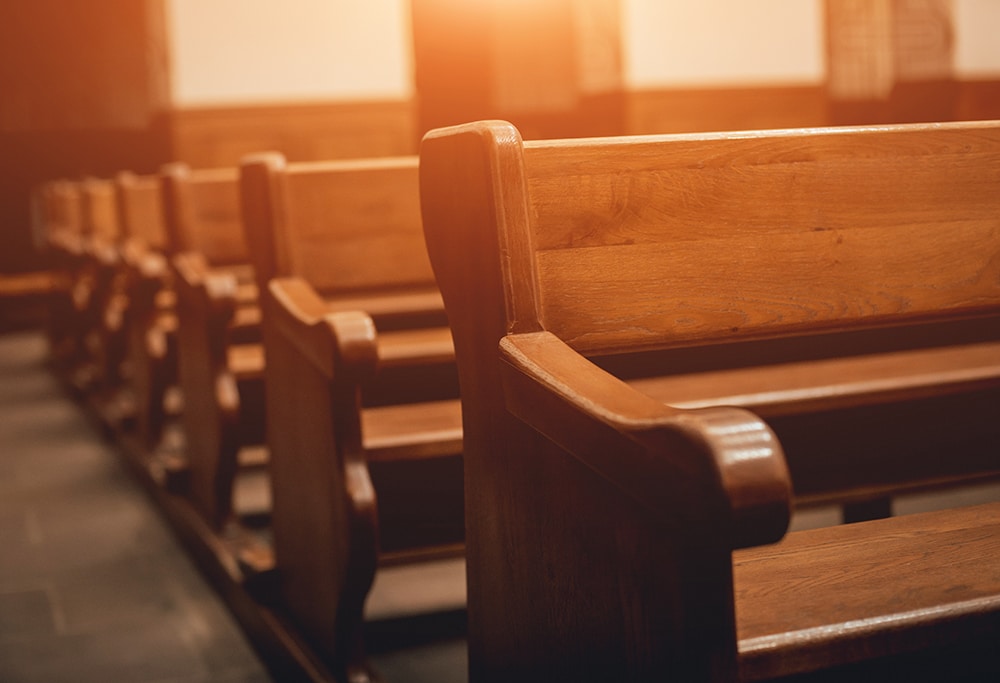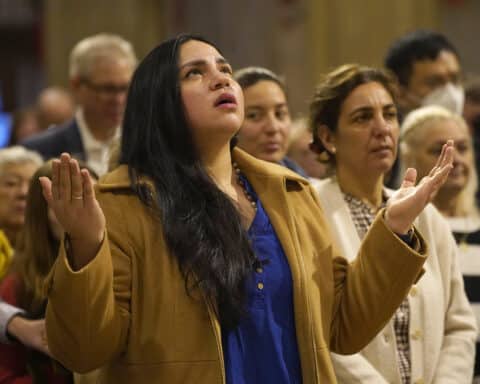The rise of the “nones” continues. According to an analysis of the Global Social Survey, released in March, the number of Americans now identifying as having “no religion” is equivalent to those who identify as Catholic or evangelical (approximately 23% for each of the three). In addition, said Ryan Burge, assistant professor at Eastern Illinois University, a person under the age of 40 in 2018 was four times as likely to identify as having no religion than someone in the same demographic in 1972. These statistics underscore the overall growth trend in nones since 1991: an astounding 266%. And these numbers are projected to continue to climb. Furthermore, the number of Americans identifying as Catholic has dropped by 3% in the last four years.
When it comes to this increasing number of “nones” in the United States, we are left trying to identify and grapple with the reasons behind it. In response to this question, the Pew Research Center last August published data asserting that the majority of “nones” choose to be religiously unaffiliated because they 1) question religious teachings and 2) don’t like the positions taken by churches on social or political issues. Smaller numbers also claimed not to like religious organizations or believe in God, or said they find religion irrelevant to their lives. Still others indicated they do not like religious leaders.
Those of us within the Church, and who likely have had painful conversations along these lines with loved ones or acquaintances who rank among the nones, recognize these reasons as all too accurate. We know the confusion that exists and the challenge of respectfully yet clearly breaking through that confusion to illuminate the truth and beauty of the Church’s teachings. We seem at times to be engulfed by a crisis of faith underscored by a widespread secularism and an uninformed, passive drift away from anything meaningful — especially something like organized religion, which demands attention and effort. Add to that today’s “bread and circuses” distractions of smartphones, social media and self-obsession, not to mention a major and ongoing crisis within the Church, and it is no wonder that more and more individuals are disengaging from organized religion, or from any faith at all.
For Catholics, these points present a great challenge. How are we to re-engage a community that actively is seeking to move away from faith, or that doesn’t see a need for faith in the first place? We must do more than simply tell them what the Church teaches. We have to convince them it is true — a task easier said than done, as it begins first with convincing ourselves. Before we begin the task of bringing others home to the Church, we must ourselves feel secure here. This may mean embarking on our own spiritual renewal. Furthermore, we must be sure that we are equipped with the proper tools to help us both explain and defend the Faith.
To the first point, this week’s In Focus (online April 28), authored by Notre Dame professor Timothy O’Malley, is an ideal place to start. Centered on renewing one’s parish and one’s self in faith during the Easter season, O’Malley recognizes the need for continuing formation and offers a path forward for the next 50 days. “We are to allow ourselves to be entirely grafted to (Christ), enjoying by means of participation the very union of love that he shares with the Father,” he writes.
Only once we ourselves have been renewed in faith will we be able to bring others home to the loving Father who awaits us all.
OSV Editorial Board: Gretchen R. Crowe, Scott Richert, York Young





